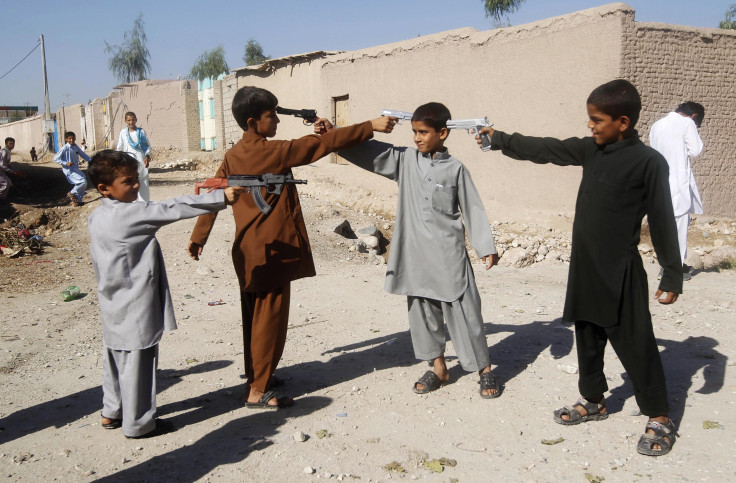US Quietly Moves Detainees Out Of Secretive Afghanistan Prison

(Reuters) - The Obama administration has quietly repatriated a dozen detainees from a small U.S. military prison in Afghanistan, moving a modest step closer toward winding down the United States' controversial post-9/11 detainee system.
President Barack Obama, in a letter to Congress released on Thursday, informed U.S. lawmakers that about 38 non-Afghan prisoners remained at the Parwan detention center outside of Kabul, down from around 50 a few months ago.
A U.S. defense official, speaking on condition of anonymity, said that a Frenchman, a Kuwaiti and 10 Pakistani prisoners were sent back to their respective home countries at the end of May.
The remaining detainees include Yemeni, Tunisian and more Pakistani nationals, and a Russian who the United States is also considering trying in a military or civilian court.
The transfers, which are not publicly disclosed, underscore the challenges the Obama administration faces in shutting down Parwan and the larger U.S. military prison at Guantanamo Bay, Cuba, which has been widely criticized by human rights groups since being populated in the wake of the Sept. 11, 2001 attacks.
Many of the detainees have not been charged with a crime, but the release of any military detainees has the potential to intensify the political backlash the Obama administration is facing over its handling of suspected militants captured in Afghanistan and elsewhere since 2001.
White House officials have sought to rebuff criticism of the decision last month to send five senior Taliban prisoners held at Guantanamo Bay to Qatar in exchange for Bowe Bergdahl, a U.S. soldier held by Taliban-linked militants in Pakistan.
The Obama administration is slowly moving to transfer some inmates out of Guantanamo Bay, where about 150 inmates remain. Obama has renewed promises to close the prison despite long-standing congressional opposition.
The non-Afghan prisoners at Parwan are the only detainees remaining in U.S. custody in Afghanistan after U.S. officials shifted hundreds of Afghan prisoners to Afghan government custody last year.
In February, U.S. officials were outraged when the government of Afghan President Hamid Karzai released 65 of those prisoners, who Washington insisted were dangerous militants requiring at least further investigation.
The U.S. government considers some remaining non-Afghan prisoners at Parwan, like some at Guantanamo, too dangerous to be freed. Some of them have unclear links to the Afghan conflict, including a Yemeni arrested in Bangkok and secretly moved to Afghanistan.
The Parwan detainees' identities, and the transfer of some of them to other countries in the past, have remained largely a mystery to the public in the United States and Afghanistan.
Last month, the Defense Department provided U.S. lawmakers with a classified report on the identities of the detainees and their alleged militant ties.
Their fate takes on new importance as the end of the U.S. and NATO military mission in Afghanistan approaches. If the two countries can finalize a troop deal, Obama plans to leave just under 10,000 soldiers in Afghanistan after 2014 and withdraw almost all by the end of 2016.
It is unclear under what circumstances the prisoners transferred last month were repatriated.
Pakistani officials have said that returned detainees would be kept under surveillance to make sure they had no militant links. Prisoner advocates say at least some returned detainees were held in secret prisons in Pakistan before being set free.
© Copyright IBTimes 2024. All rights reserved.





















